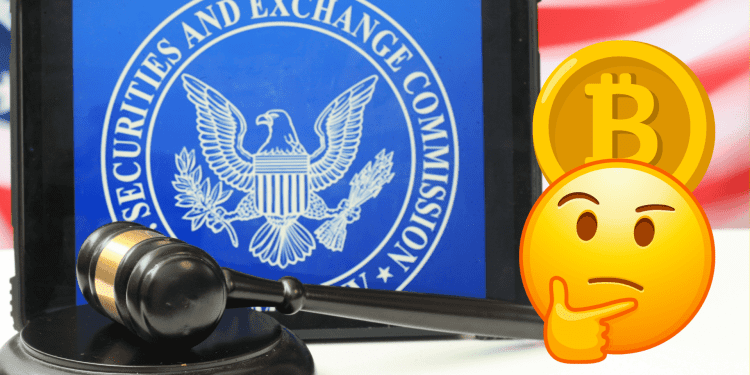- Financial and crypto leaders are voicing concerns on social media platforms about how the U.S. Securities and Exchange Commission (SEC) might influence the future of crypto ETFs.
- Scott Johnsson, a U.S. financial lawyer, and Nic Carter, a venture capitalist, are among those highlighting possible issues with the SEC’s approach to in-kind creation/redemption for digital assets.
- The anticipated approval of the Bitcoin Spot ETF has sparked optimism in the market, with investors expecting a significant boost in the crypto sector.
The crypto community is currently engaged in a spirited discussion about the potential impact of the U.S. Securities and Exchange Commission’s (SEC) regulatory decisions on the future of crypto exchange-traded funds (ETFs). This debate, unfolding on social media, has drawn attention to the potential ripple effects of the SEC’s policies on the efficiency and security of these digital asset funds.
Concerns Over Regulatory Approach
Financial lawyer Scott Johnsson has been particularly vocal about the SEC’s reluctance to approve mechanisms for in-kind creation or redemption of digital assets. According to Johnsson, this hesitancy could lead to a less secure investment product, potentially putting investors at risk. This perspective is significant as it underlines the SEC’s mandate to protect investors, yet their approach might inadvertently introduce new vulnerabilities.
Venture capitalist Nic Carter has added to this narrative, suggesting that the SEC’s stance could result in less efficient operations of crypto ETFs. The implications of this could be far-reaching, potentially affecting the cost-effectiveness and accuracy of these funds. Carter’s insights indicate a possible increase in expenses for investors, which could alter the attractiveness of crypto ETFs.
BitMEX’s Perspective on ETF Operations
Adding to the discourse, the crypto exchange BitMEX, co-founded by Arthur Hayes, has expressed concerns about how the SEC’s policies might affect the fundamental operations of crypto ETFs. BitMEX has highlighted the critical role of authorized participants (APs) in maintaining the efficiency of ETFs through in-kind creations and redemptions. The SEC’s preference for cash transactions, as opposed to in-kind methods, could diminish the competitive edge and overall effectiveness of the ETF structure, according to BitMEX. This viewpoint is essential as it sheds light on the operational challenges that could emerge under the SEC’s current regulatory framework.
The concerns raised by Johnsson, Carter, and BitMEX underscore the complexities and uncertainties surrounding the SEC’s regulatory approach. While the approval could inject new energy into the market, these expert perspectives highlight the need for a careful consideration of the implications of SEC policies on the burgeoning field of crypto ETFs.














